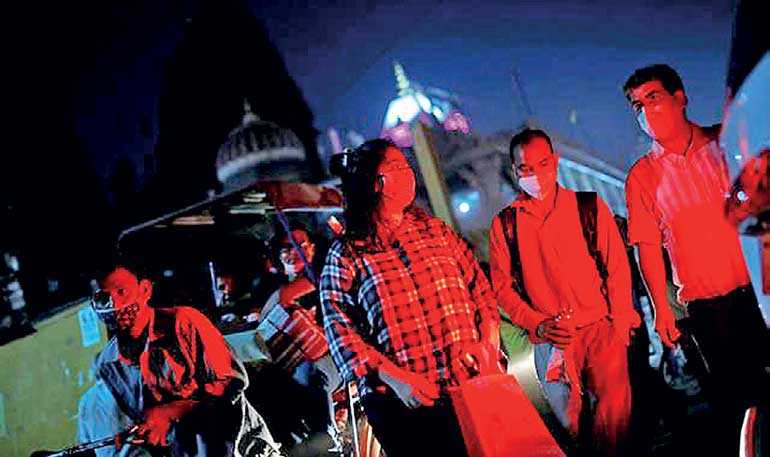Wednesday Feb 25, 2026
Wednesday Feb 25, 2026
Tuesday, 20 October 2020 01:03 - - {{hitsCtrl.values.hits}}

MUMBAI (Reuters): At least half of India’s 1.3 billion people are likely to be infected with the new coronavirus by next February, helping slow the spread of the disease, a member of a Federal Government committee tasked with providing projections said on Monday.
India has so far reported 7.55 million cases of the coronavirus and is second only to the United States in terms of total infections. However, COVID-19 infections are decreasing in India after a peak in mid-September, with 61,390 new cases reported on average each day, according to a Reuters tally.
“Our mathematical model estimates that around 30% of the population is currently infected and it could go up to 50% by February,” Manindra Agrawal, a professor at the Indian Institute for Technology in Kanpur and a committee member, told Reuters.
The committee’s estimate for the current spread of the virus is much higher than the federal government’s serological surveys, which showed that only around 14% of the population had been infected as of September, but Agrawal said serological surveys might not be able to get sampling absolutely correct because of the sheer size of the population that they were surveying.
Instead, the committee of virologists, scientists and other experts, whose report was made public on Sunday, has relied on a mathematical model. “We have evolved a new model, which explicitly takes into account unreported cases, so we can divide infected people into two categories – reported cases and infections that do not get reported,” Agrawal said.
The committee warned that their projections would not hold up if precautions were not followed and cases could spike by up to 2.6 million infections in a single month, if measures such as social distancing and wearing masks were ignored.
Experts have warned that infections could rise in India as the holiday season nears, with celebrations for the Hindu festivals of Durga Puja and Diwali due this month and in mid-November respectively.